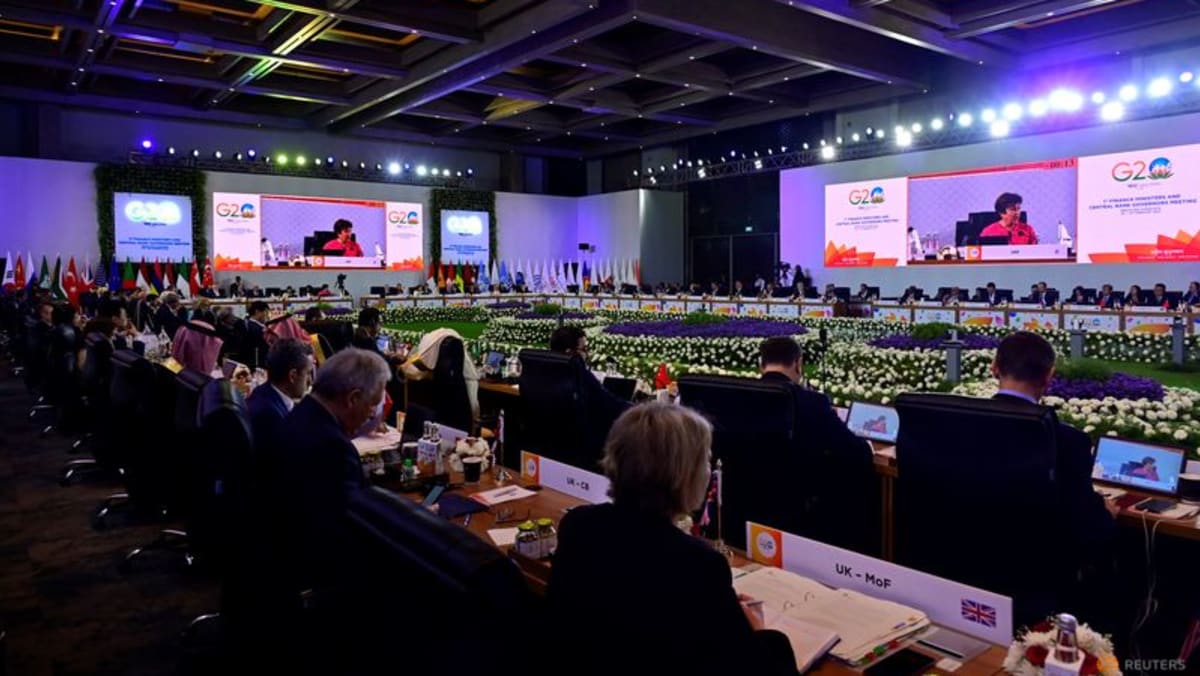Besides the G7 nations, the G20 bloc also includes such countries as Australia, Brazil and Saudi Arabia.
The delegates said the meeting was likely to end with a statement by the host summarising the discussions.
“In the absence of a consensus, the option for India would be to issue a chair statement,” one official said.
India’s foreign, finance and information ministries did not immediately respond to requests seeking comment.
DEBT NEGOTIATIONS
On the sidelines, the International Monetary Fund (IMF) held a meeting on Saturday with the World Bank, China, India, Saudi Arabia and the G7 on restructuring debt for distressed economies, but there were disagreements among members, said IMF Managing Director Kristalina Georgieva.
“We just finished a session in which it was clear that there is a commitment to bridge differences for the benefit of countries,” Georgieva, who co-chaired the roundtable with Indian Finance Minister Nirmala Sitharaman, told reporters.
One delegate told Reuters there was some initial progress made, mostly on the language around the issue, but restructuring was not discussed in detail.
Yellen said there were no “deliverables” from the meeting, which was mostly organisational.
Further discussions of the panel are planned around the time of the IMF and World Bank spring meetings in April.
Pressure has been building on China, the world’s largest bilateral creditor, and other nations to take a large haircut in loans given to struggling developing nations.
In a video address to the G20 meeting on Friday, Chinese Finance Minister Liu Kun reiterated Beijing’s position that the World Bank and other multilateral development banks should participate in debt relief by taking haircuts alongside bilateral creditors.
Yellen had said before the debt meeting that she would press all bilateral creditors, including China, to participate in meaningful discussions, adding that debt treatment for Zambia and financing assurances for Sri Lanka were “most urgent”.
Zambia owed Beijing nearly US$6 billion of a total external debt of US$17 billion at the end of 2021, according to government data, while Ghana owes China US$1.7 billion, according to the International Institute of Finance, a financial services trade association focused on emerging markets.
Sri Lanka owed Chinese lenders US$7.4 billion – or nearly a fifth of public external debt – by the end of 2022, calculations by the China Africa Research Initiative think tank show.
(Except for the headline, this story has not been edited by PostX News and is published from a syndicated feed.)

